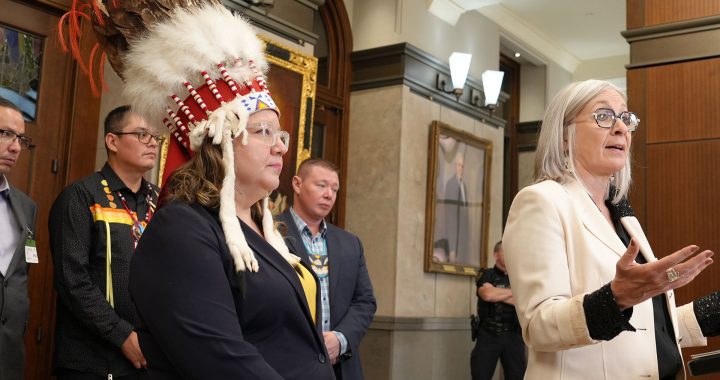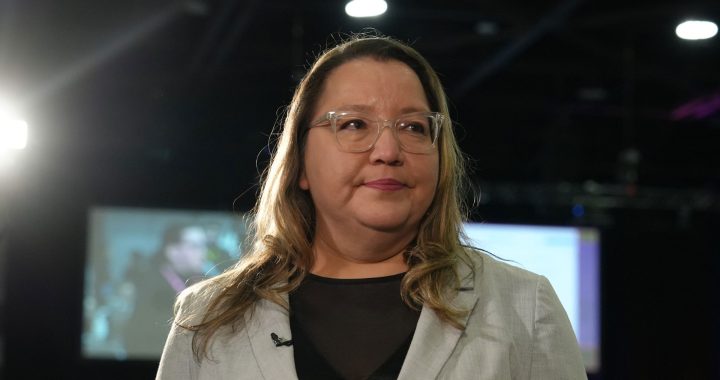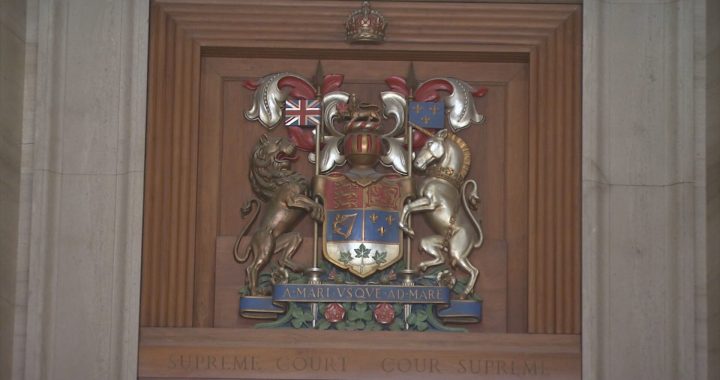A committee formed last year to expedite the transfer of residential school documents to survivors and organizations like the National Centre for Truth and Reconciliation (NCTR) has suspended its work due to insufficient federal funding, says its chair.
Cadmus Delorme said the 2024 federal budget provided little more to the seven-member Residential School Documents Advisory Committee (DAC) than money for meetings.
In an interview with APTN News, Delorme said the committee paused its work in August despite its important mandate overseeing the transfer of millions of residential school documents from organizations like the Catholic Church and federal government.
The NCTR has also stepped away.
Executive director Stephanie Scott said NCTR is “disappointed and frustrated” with the current state of federal resources to maintain the committee’s work.
This includes completing a second scoping exercise as a committee and developing a methodology to collect, manage and share documents and records from governments, schools and church organizations, she said in an emailed statement to Nation to Nation.
“As such, we have suspended our participation from the DAC until federal support is adequate to be able to do this crucial work.”
Crown-Indigenous Relations Minister Gary Anandasangaree’s office sent a statement to APTN in response.
“The government established the Residential School Documents Advisory Committee as an independent, Survivor-driven advisory committee to expedite the identification and disclosure of Residential Schools documents that may not have been previously shared,” the statement said. “The Committee provides guidance to CIRNAC and other federal departments in identifying relevant documents, removing barriers to sharing, and developing options for added authorities to share documents with the National Centre for Truth and Reconciliation.
“The Committee has been allocated the resources required to continue this work, and as the document identification exercise continues, CIRNAC will be assessing future funding requests for the Document Advisory Committee based on the initial recommendations.”
Mi’kmaw/Lnu Sen. Brian Francis raised the issue in the Senate last week.
He said it was “shameful” the Trudeau government was not meeting its commitments in terms of helping survivors and the NCTR locate and access residential school documents.
“It’s very concerning,” he said, “very disheartening that survivors are still waiting for answers years later after there was a commitment made to work towards obtaining answers for them and their families.
“To me, it tells me about the level of commitment from the government about true and meaningful reconciliation. When all this group here is looking for, the committee and the NCTR, is proper funding to get to the truth of what really happened and get to the history of what happened to survivors and loved ones during the residential school era.”
A new non-profit organization has been formed to assist Indigenous women who are victims of forced or coerced sterilization.
“The fact is forced sterilization of Indigenous women even happened last year,” said Madeleine Redfern, a board member with the Survivors Circle for Reproductive Justice. “So people are shocked to learn that this is still a potential risk for our women.
“It’s not just an impact on the individual,” Redfern, an Inuk, added. “It’s a huge impact on the relationship with their spouse, with their children, with their siblings, their mothers, their grandmothers. It effectively prevents and stops a woman from being able to make informed decisions about whether or not she wants to expand her family or not.”
The Survivors Circle plans to assist victims with a national registry, healing support funds, data, research and public education.
It is also preparing to hold a national gathering next March.
Meanwhile, the John Howard Society is facing off against the Saskatchewan government in the Supreme Court of Canada this week.
At issue is the burden of proof provincial corrections officials must show before finding an inmate guilty of an alleged infraction.
Saskatchewan currently uses a “balance of probabilities” system where the John Howard Society would like to see this upgraded to a “beyond a reasonable doubt” threshold currently afforded a defendant in a criminal trial.
This higher threshold is also used by Correctional Service of Canada institutions.
John Howard Society lawyer Pierre Hawkins said it is essential inmates within a correctional system see it as fair.
He said this is particularly important in the case of Indigenous inmates who are grossly over-represented in the Saskatchewan prison system.
“In Saskatchewan, correctional facilities over 75 per cent of people at any given time are Indigenous,” Hawkins said. “I think it is important that when a system impacts a population that is so disproportionately Indigenous, we have to make sure that system is fair. There are all sorts of reasons – institutional, historical – why the governments involved need to make sure that it’s fair.”












